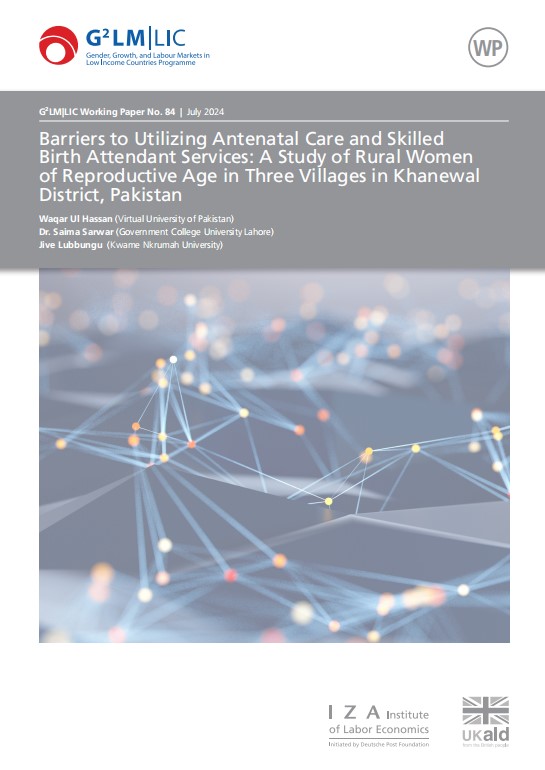Antenatal care (ANC) and skilled birth attendants (SBAs) play a crucial role in reducing maternal mortality. This study aimed to identify the barriers to the utilization of essential healthcare services like antenatal care and skilled birth attendants to rural women of reproductive age in District Khanewal, Pakistan. Primary data were collected through semi-structured interviews with Lady Health Workers, rural women of reproductive age, and household members. The participants were purposively selected. A total of 15 semi-structured interviews were conducted, with five interviews each for rural women of reproductive age, household members, and Lady Health Workers. The thematic analysis is conducted to identify the barriers. Rural women’s barriers to not using ANC and SBA services and preference for traditional birth attendants stem from their trust in them, adherence to traditional practices, lack of ANC knowledge, decision-making capacity, and distance to health facilities, all identified as the barriers to the utilization. It is necessary to implement community-based interventions in rural areas to enhance knowledge and awareness of ANC services. Targeted interventions should be made in rural areas to improve the coverage and accessibility of primary healthcare services. Rather than discouraging the primary health-seeking behavior of rural women, the study suggests engaging traditional birth attendants, providing them with training, and expanding ANC coverage for the time being by utilizing local traditional attendants.

Barriers to Utilizing Antenatal Care and Skilled Birth Attendant Services: A Study of Rural Women of Reproductive Age in Three Villages in Khanewal District, Pakistan
- Waqar Ul Hassan
- Dr. Saima Sarwar
- Jive Lubbungu